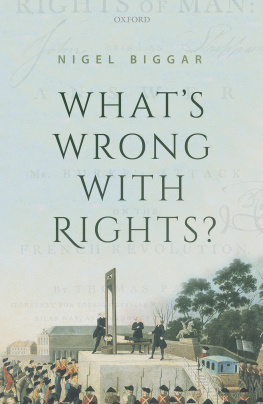Routledge Revivals
Nonsense upon Stilts
In Nonsense upon Stilts, first published in 1987, Waldron includes and discusses extracts from three classic critiques on the idea of the natural rights embodied in the 1789 Declaration of the Rights of Man and the Citizen. Each text is prefaced by an historical introduction and an analysis of its main themes. The collection as a whole in introduced with an essay tracing the philosophical background to the three critiques as well as the eighteenth-century idea of natural rights which they attacked.
But the point of reproducing these works is not merely historical. Modern attacks on rights-based political philosophy mirror the concerns of Bentham, Burke and Marx. Jeremy Waldron has therefore added an extensive concluding essay which relates these classic texts to the modern discussion of rights and re-examines the idea of rights in the light of contemporary critiques. This text provides an invaluable teaching tool for courses in politics and philosophy.
Nonsense upon Stilts
Bentham, Burke and Marx on the Rights of Man
Edited by
Jeremy Waldron
First published in 1987
by Methuen
This edition first published in 2015 by Routledge
2 Park Square, Milton Park, Abingdon, Oxon, OX14 4RN
and by Routledge
711 Third Avenue, New York, NY 10017
Routledge is an imprint of the Taylor & Francis Group, an informa business
1987 Jeremy Waldron
The right of Jeremy Waldron to be identified as author of this work has been asserted by him in accordance with sections 77 and 78 of the Copyright, Designs and Patents Act 1988.
All rights reserved. No part of this book may be reprinted or reproduced or utilised in any form or by any electronic, mechanical, or other means, now known or hereafter invented, including photocopying and recording, or in any information storage or retrieval system, without permission in writing from the publishers.
Publishers Note
The publisher has gone to great lengths to ensure the quality of this reprint but points out that some imperfections in the original copies may be apparent.
Disclaimer
The publisher has made every effort to trace copyright holders and welcomes correspondence from those they have been unable to contact.
A Library of Congress record exists under LC control number: 87011211
ISBN 13: 978-1-138-82242-9 (hbk)
ISBN 13: 978-1-315-74280-9 (ebk)
ISBN 13: 978-1-138-82244-3 (pbk)
NONSENSE UPON STILTS
Bentham, Burke and Marx on the Rights of Man
Edited
with introductory and concluding essays by
JEREMY WALDRON
METHUEN
London and New York
First published in 1987 by
Methuen & Co. Ltd
11 New Fetter Lane, London EC4P 4EE
Published in the USA by
Methuen & Co.
in association with Methuen, Inc.
29 West 35th Street, New York, NY 10001
1987 Jeremy Waldron
Phototypeset by AKM Associates (UK) Ltd
Ajmal House, Hayes Road, Southall, London
Printed in Great Britain by
St Edmunsbury Press, Bury St Edmunds, Suffolk
All rights reserved. No part of this book may be reprinted or reproduced or utilized in any form or by any electronic, mechanical or other means, now known or hereafter invented, including photocopying and recording, or in any information storage or retrieval system, without permission in writing from the publishers.
British Library Cataloguing in Publication Data
Nonsense upon stilts:
Bentham, Burke and Marx
on the rights of man.
1. Civil rightsHistorySources
I. Waldron, Jeremy
323.40903 JC571
ISBN 0-416-91890-5 pbk
Library of Congress Cataloging in Publication Data
Nonsense upon stilts.
Bibliography: p.
Includes index.
1. Human rights.
2. Bentham, Jeremy, 17481832
Contributions in human rights.
3. Burke, Edmund, 17291797
Contributions in human rights.
4. Marx, Karl, 18181883
Contributions in human rights.
I. Title.
JC571.N655 1987 323.401 8711211
ISBN 0-416-91890-5 (pbk.)
Contents
1
Natural rights in the seventeenth and eighteenth centuries
2
The Declaration of the Rights of Man and the Citizen 1789 Introduction
3
Jeremy Benthams Anarchical Fallacies Introduction
4
Edmund Burkes Reflections on the Revolution in France Introduction
5
Karl Marxs On the Jewish Question Introduction
6
Nonsense upon stilts? a reply
Though this project took more time to put together than it should have, it would have taken even longer had it not been for the encouragement and support of my editor at Methuen, Nancy Marten. I am grateful to her, and also to Robert Goodin, Richard Gunn, Don Herzog, Kristin Luker, Kim Scheppele and Philip Selznick for discussing various parts of it with me. Sections of the concluding essay have been read at seminars as far afield as Berkeley, Chicago, Oxford, London, Edinburgh, Amsterdam, Wellington and Dunedin. I am grateful to the participants for their comments.
The idea of human rights is taken more seriously now than it has been for centuries. Not since the heady days of the American and French Revolutions have rights been used so widely as touchstones of political evaluation or as an idiom for the expression of political demands. In the market-place of domestic politics and in international affairs, respect for rights is the new criterion of political legitimacy. A government that respects its citizens rights is a good government and deserves support; a government that violates human rights should be denied aid and comfort from abroad and shunned in the international community. In moral and political theory, where the idea was for a long time in disrepute, rights are again a serious subject of philosophical enquiry. The literature abounds with discussions of their normative structure, the values like equality and autonomy that are thought to underpin them, the weight that they are supposed to have against other moral considerations, and the relation between moral rights and the rights that are established by positive law. It is common for political philosophers nowadays to claim that the demands of justice are rights-based rather than based on considerations of social utility, and many have adopted the Lockean view that the primary function of law and other aspects of social organization is to constitute a framework to uphold and respect the moral rights of individual citizens.
But though these ideas are popular and powerful, they are far from uncontroversial. Recently more and more writers have expressed reservations about the shift away from pragmatic or utilitarian modes of political evaluation, about the fact that we no longer ask what is in the interest of all but, in every case, what individuals are entitled to as a matter of principle. Others are alarmed at what appears to be the ascendancy of an assertive and muscular individualism in this sort of theory at the expense of what they take to be a proper awareness of community, solidarity and civic virtue in human life. Still others are worried by what seems to them to be the abstract and formalistic character of modern claims about universal rights. Modern charters of rights and their philosophical rationalizations are generalizations: they do not seem to pay much attention to the difference that social and historical circumstances may make to the application of anodyne










